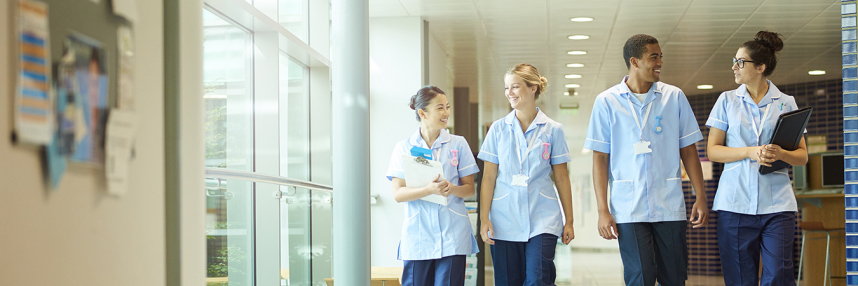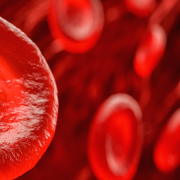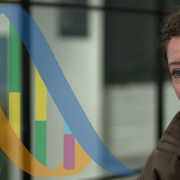Genomics in practice: ‘Nurses have a big role!’
In the first of our Q&A series as part of the #GenomicsConversation, we speak to inherited cardiac conditions nurse Tootie Bueser about how genomics is shaping nursing practice
 Could you tell us a little bit about your role?
Could you tell us a little bit about your role?
I am a nurse researcher and nurse specialist in the field of inherited cardiac conditions (ICCs), developing ways to support individuals and families affected by ICCs. I run and develop research in practice programmes to support nurses and allied professionals in evidence-based practice and clinical academic careers.
How did you get ‘into’ genomics? When did you become aware of its importance?
In everyday clinical practice in ICCs, genomics is important: it is a key element of the patient and family diagnostic and treatment pathway. I had to learn about genomics and its implications pretty much from day 1.
How is genomics integral to your role?
As an ICC nurse, genomics supports diagnosis and management of patients, but it is also important for their first-degree relatives, as results from a genetic test may open up testing to other family members, which could facilitate preventative measures.
Can you give an example of how you use genomics to benefit patients?
One of our patients was born with Long QT syndrome, a condition that can cause dangerous heart rhythm problems, coupled with sensorineural deafness. Genomic tests revealed that she had two copies of a faulty genetic change in the KCNQ1 gene, which confirmed the diagnosis of Jervell and Lange-Nielsen syndrome. Genomic testing helped give a unifying diagnosis for the patient’s heart and hearing problems, and prompt implantation with a cochlear implant and commencement of beta-blockers ensured she had the best start in life despite these issues. This also helped us assess the chances of her other family members being affected by this syndrome and/or Long QT syndrome.
If there was one thing you’d want your fellow nurses to know about genomics, what would it be?
That they have a big role in genomics! Nurses and midwives spend a lot of time with patients, and these valuable interactions are opportunities to determine whether patients would benefit from a referral to a genomics service. For example, a conversation about a patient’s family may reveal a history of young onset heart disease or other conditions occurring regularly across generations.
What kind of career opportunities can you see opening up in genomics within the nursing profession in the future?
As genomic testing becomes more widely available and applied to therapies, I think more research will be needed on how we ensure patients and families are supported in their decision-making to ensure informed consent to testing and treatment; as well as the psychosocial impacts of these technologies. Nurses will be well placed to explore these research areas, as they are very much involved in the patient pathway in these aspects. Furthermore, there will be opportunities for nurses to explore research using the large datasets generated by genomics and how these correlate to clinical care.
What are your key lessons learned?
Tailored communication is key in genomics, whether this is supporting a patient with a new genetic diagnosis, taking them through a genomic test, or helping them communicate results to their family members. My own research has shown that genomics healthcare has a social context and that families, healthcare providers and other social contacts (employers, friends and patient support groups) all have a part to play in promoting coping and adjustment.
And your final word on genomics in nursing?
I think the Covid-19 pandemic has shown how advanced the UK is in genomic technologies, and with that will come more applications to our health, both for prevention and treatment. Nurses are key professionals in this, and it is never too early to think about the areas in our practice where genomics would be most useful and how, as a nurse, you can support patients to get the most benefit from it.
Tootie Bueser is an inherited cardiac conditions nurse and associate director for clinical research at Guy’s and St Thomas’ NHS Foundation Trust
–









